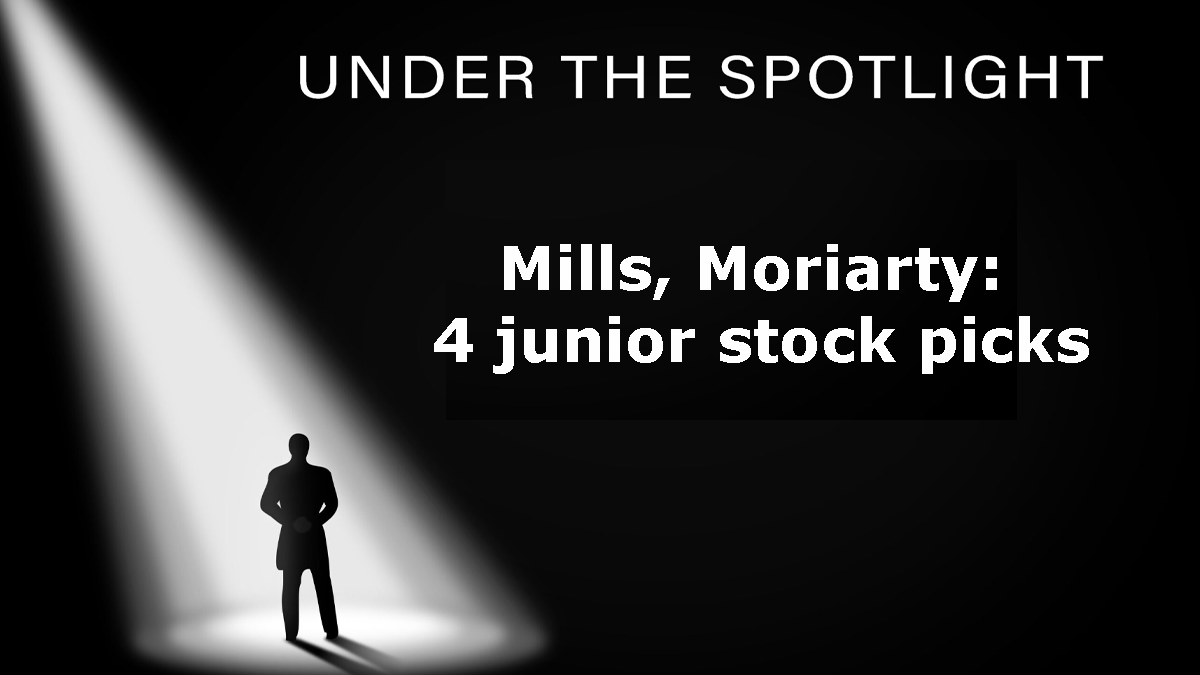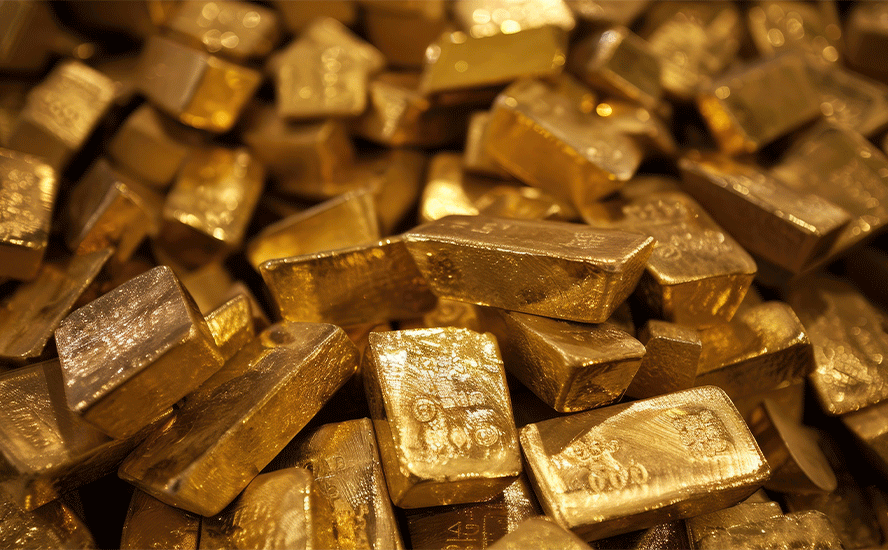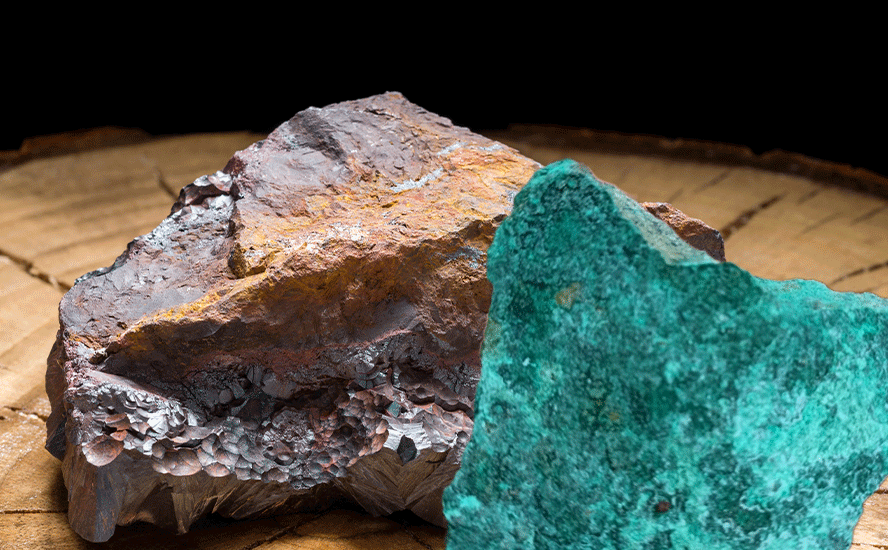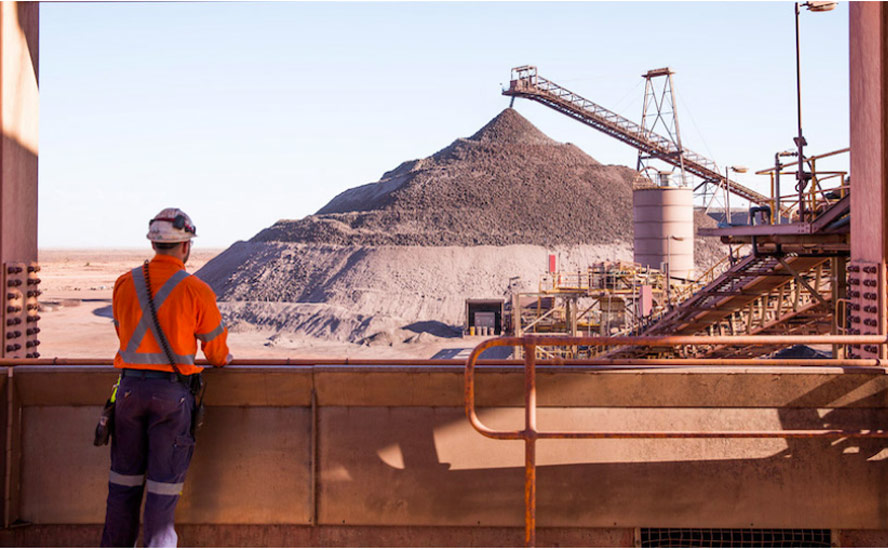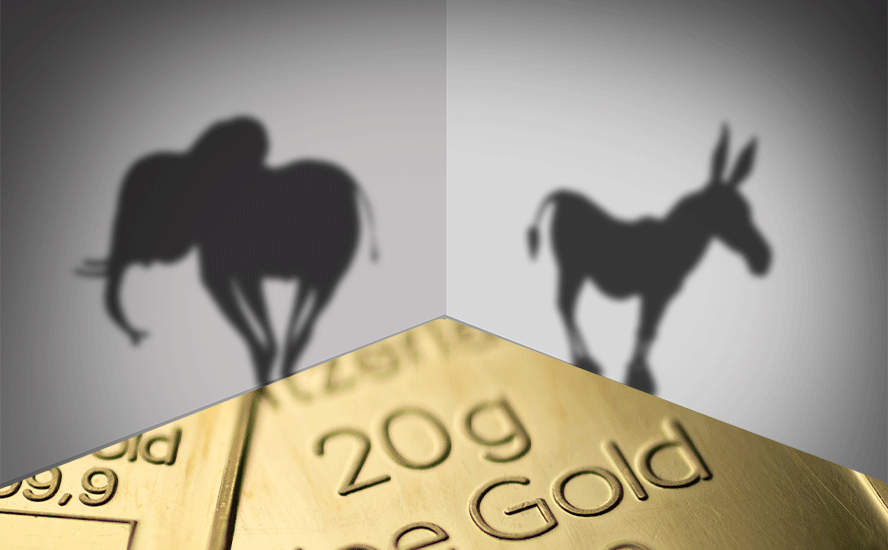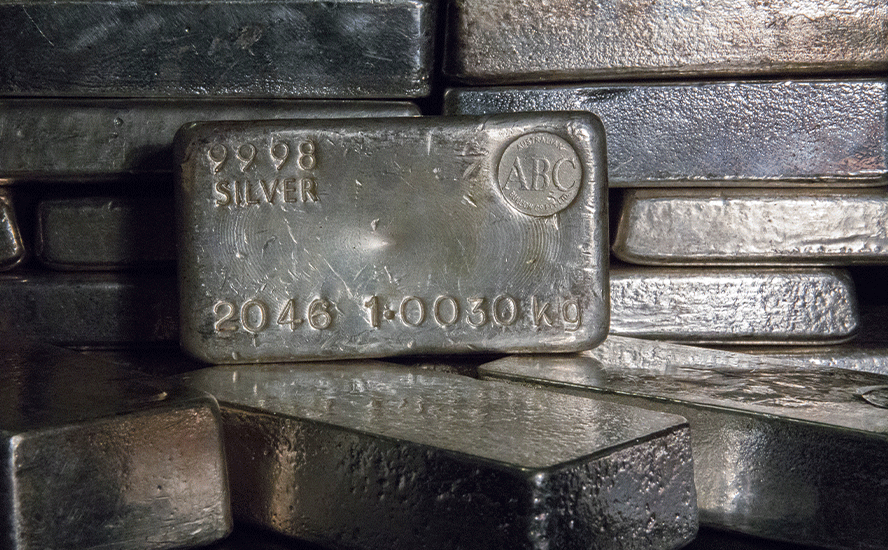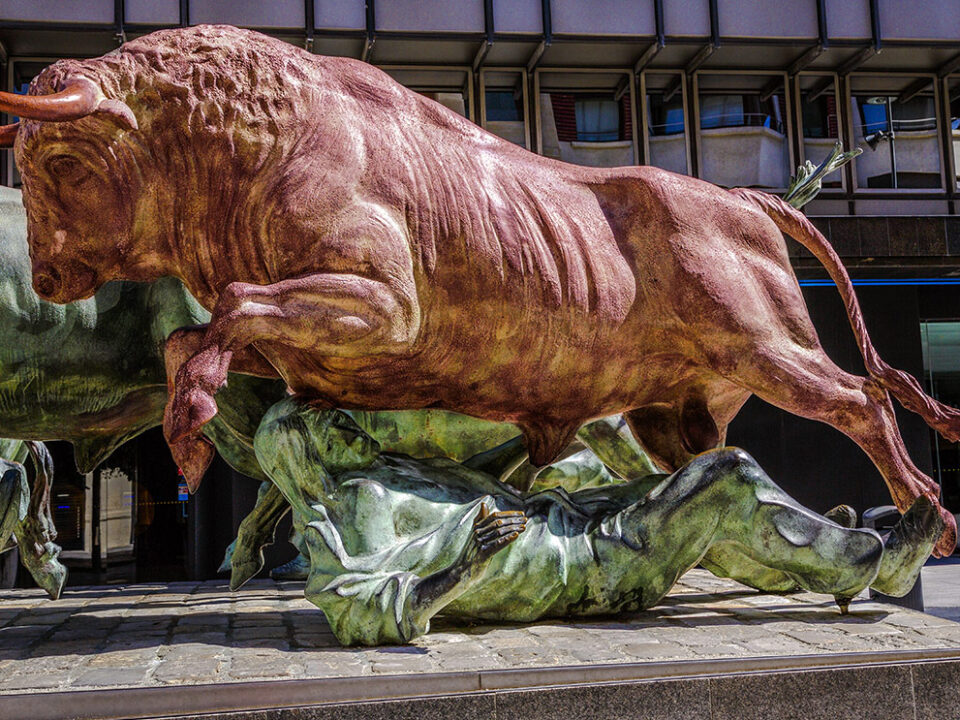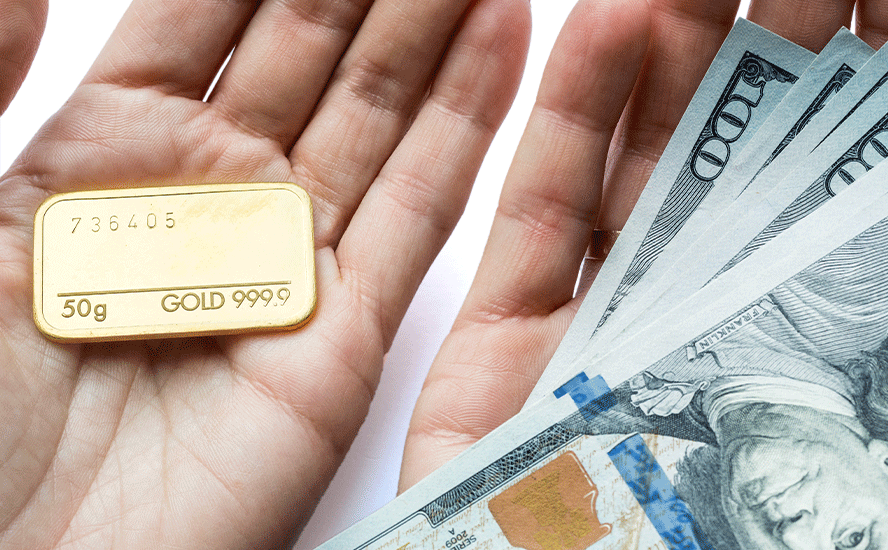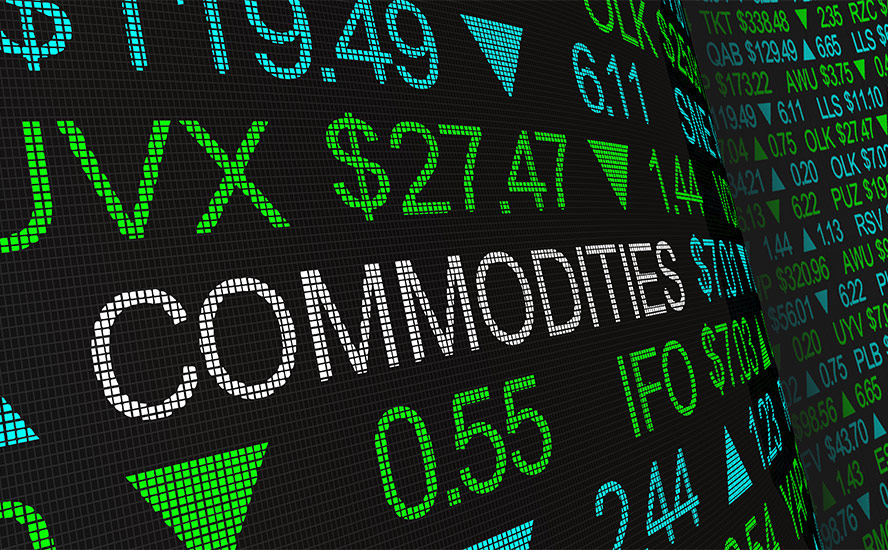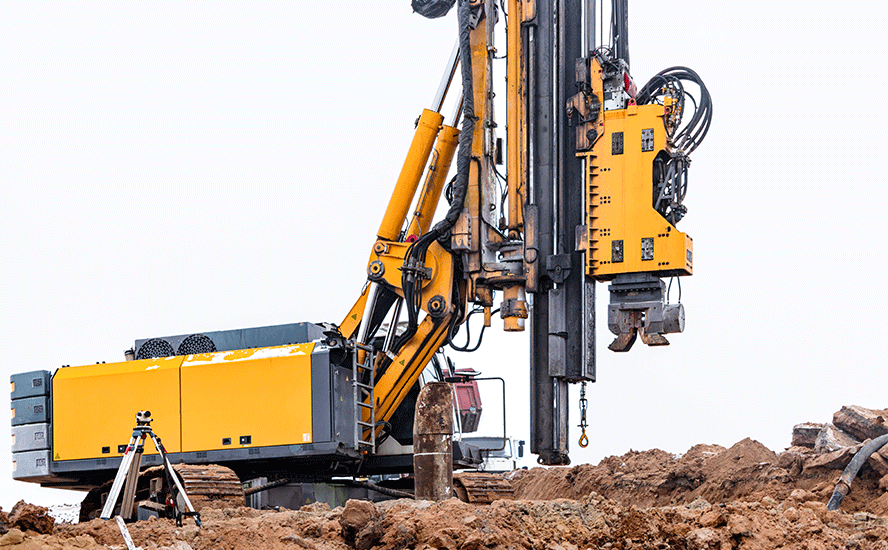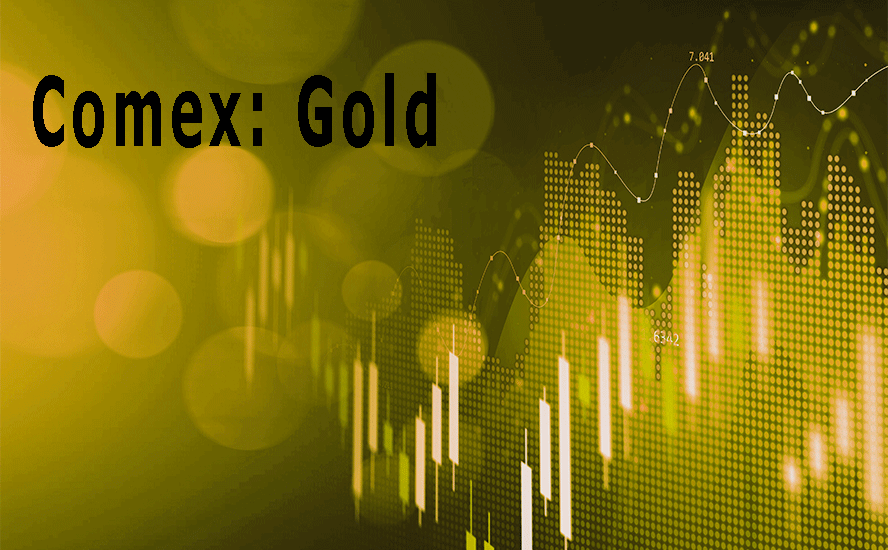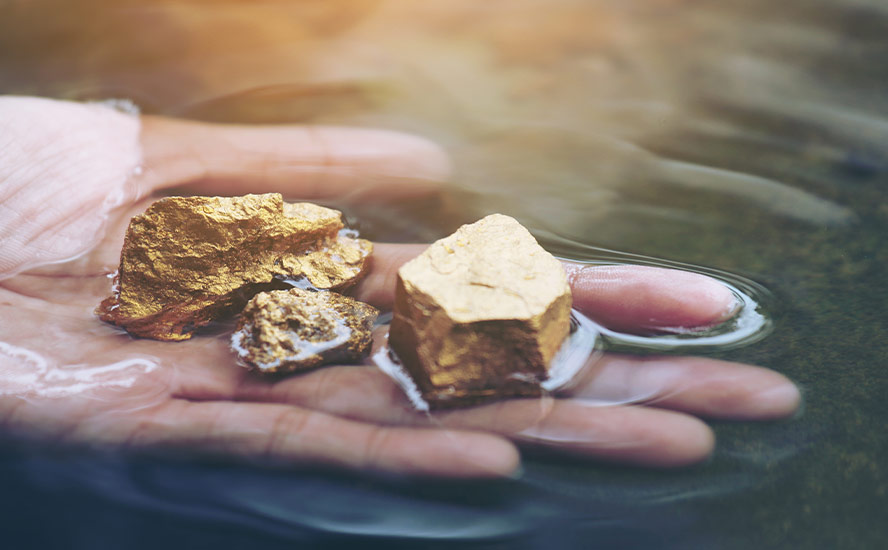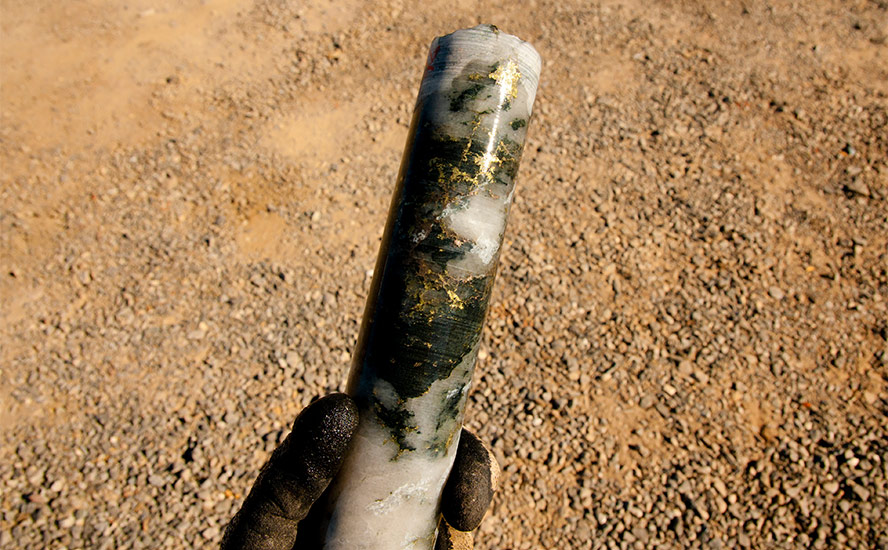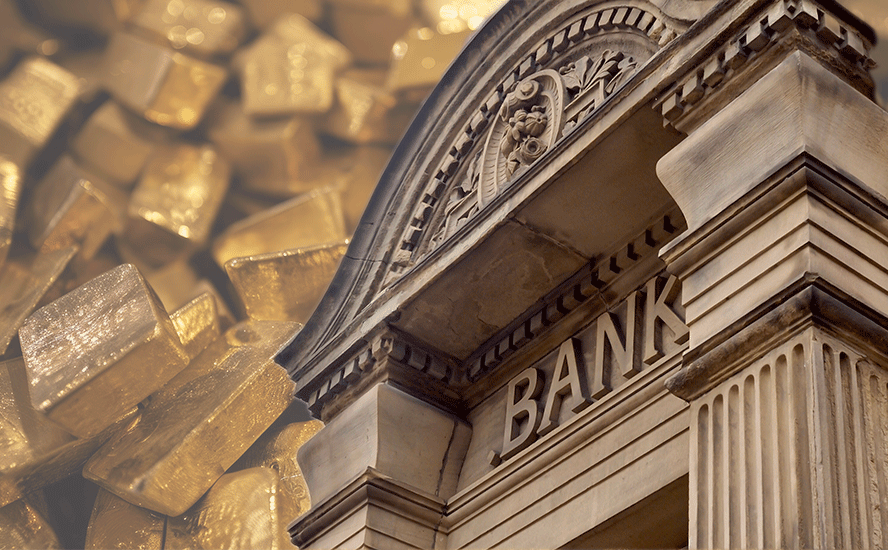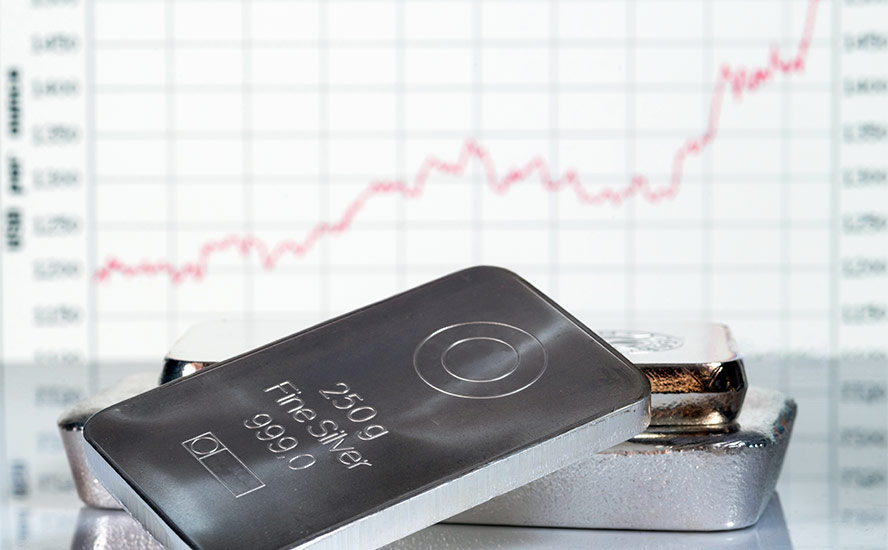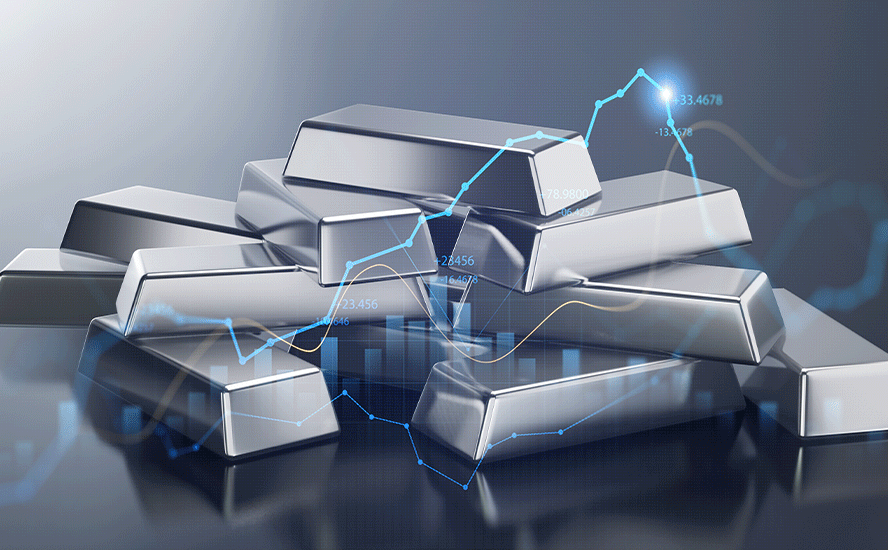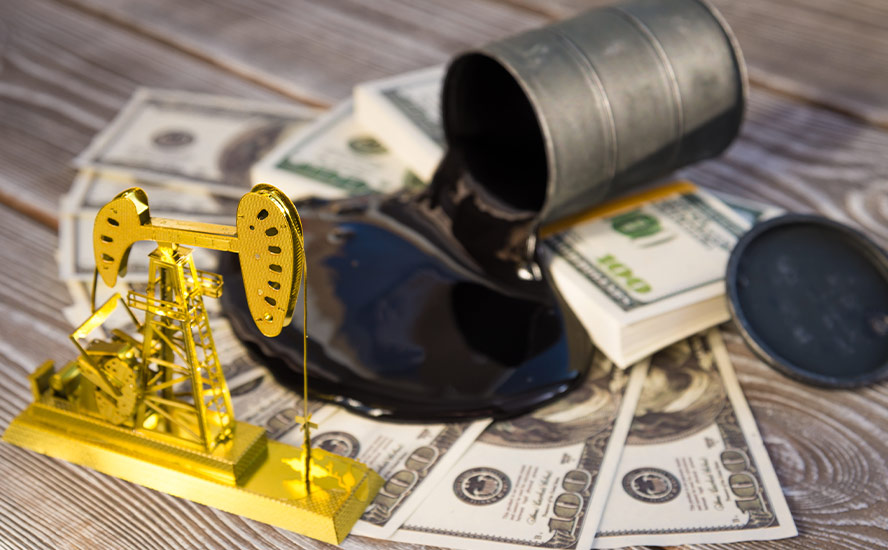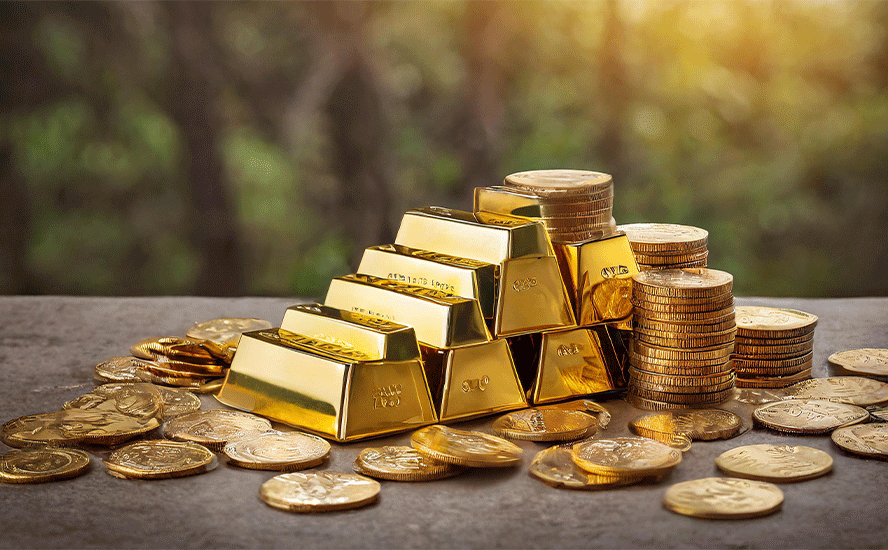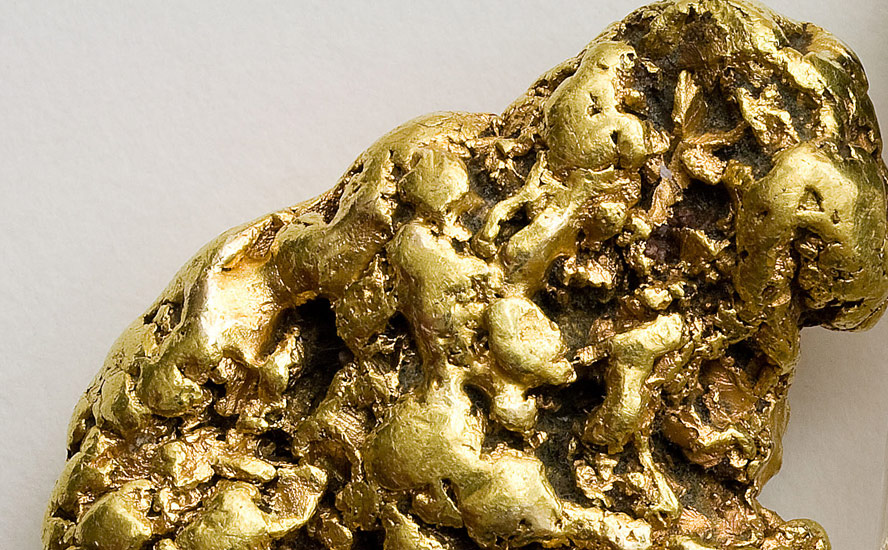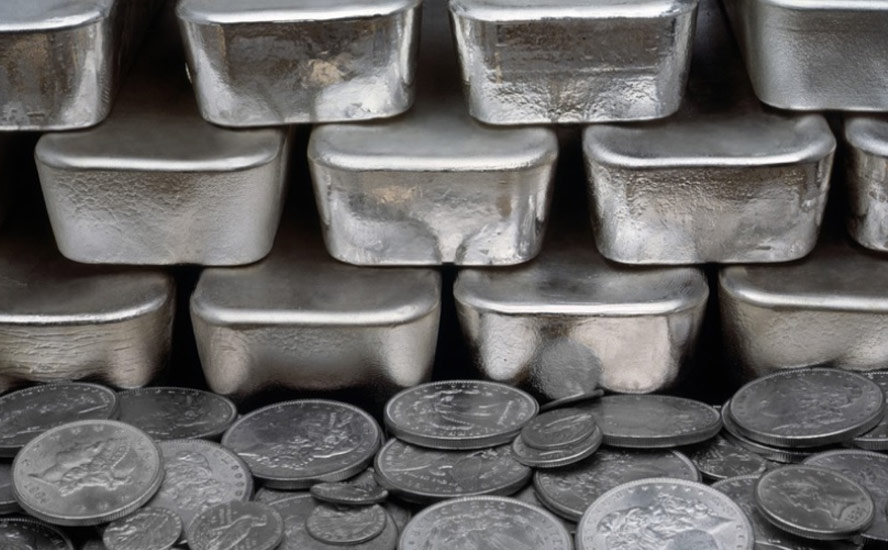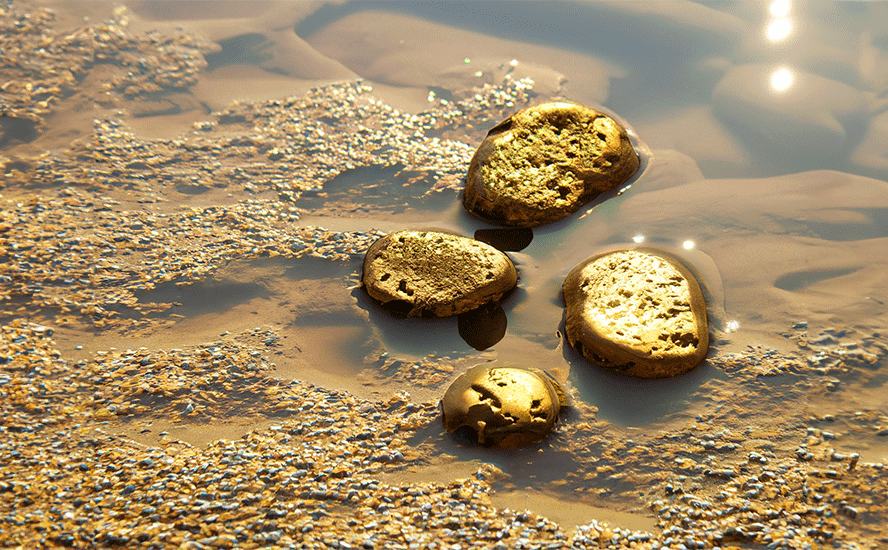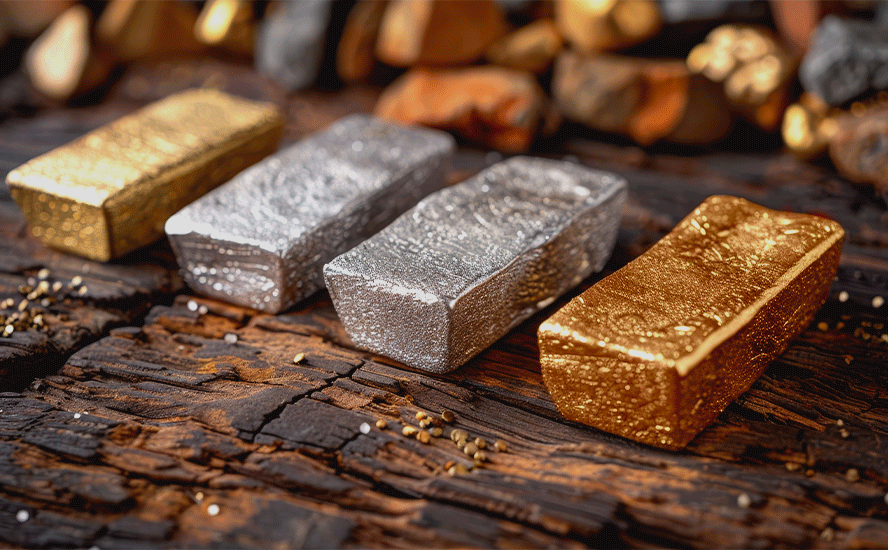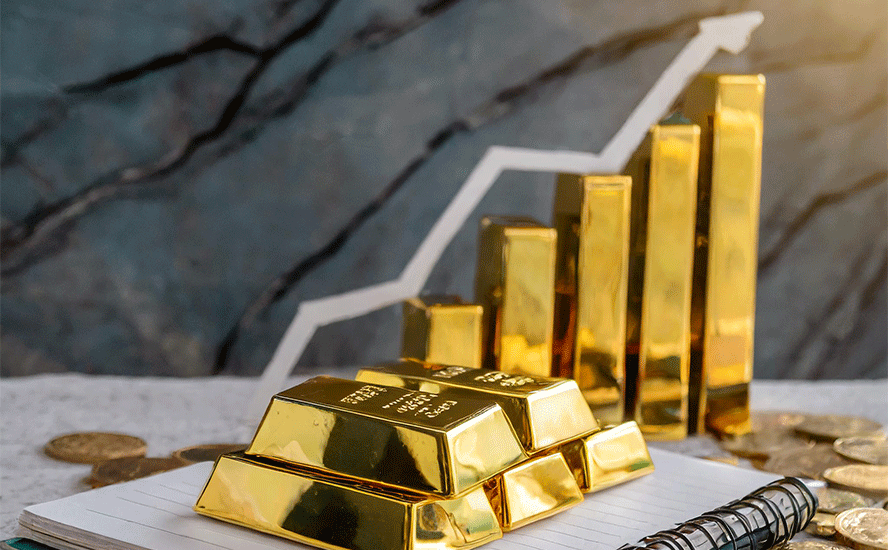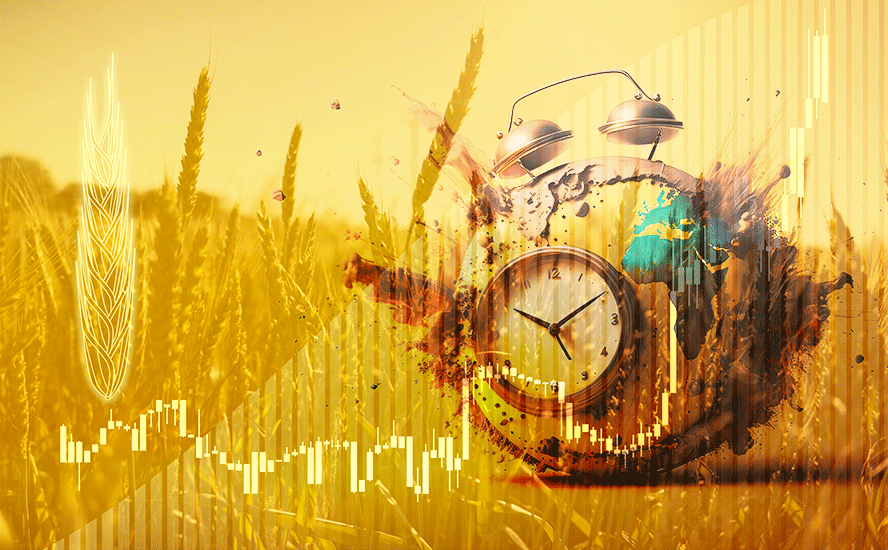Mills, Moriarty: 4 junior stock picks
2022.03.05
Rick Mills: Joining me today is Bob Moriarty from 321gold. We’re going to be discussing commodities and precious metals.
Bob I see commodities and precious metals as where I want to position myself going forward. We’ve started the first leg of a commodities bull market. We’ve taken a pause, but I’m firmly on the side of the camp that says there’s a second leg that’s about to get started.
Demand drivers are numerous they include; electrification and decarbonization – the switch from fossil fuels to renewable, supply chain disruptions and I’m not talking from the pandemic, there’s malinvestment and non-investment into our commodities, into our search for resources and development of deposits.
We’ve got a lack of security of supply, resource nationalism, climate change and deep rooted structural supply deficits. We’ve got inflation, ESG, we’ve got regulations, I mean we’re so burdened in red tape, it can take 20 years or more in the US and Canada from discovery to actually going mining.
And for 20 years China has been eating our resource lunch. They’ve been locking up supply of minerals and metals, they’ve done government to government infrastructure deals for off-take, they do sovereign wealth fund deals where they buy pieces of or buy deposits outright. They’ve locked up minerals in Africa, Asia and they’ve locking up South America.
We’re 20 years behind and playing catchup. So much so that the US is reliant on foreigners for 47 minerals it considers critical – 50 to 100% of 33 of these 47 critical minerals, 70% of them, are supplied by Russia and China.
I can’t get away from commodities and precious metals going forward, our supply of commodities from coffee to zinc is in jeopardy. What are your thoughts on this, Bob?
Bob Moriarty: Well all of what you say is true, and it’s very important, but Russia and Ukraine have just introduced a wild card that makes it even more true. I’ve been on record for years saying we’re going to have a massive crash, we’re going to get away from paper assets and we’re going to have to go to real assets. The United States is bankrupt, the EU is bankrupt, most of the world is bankrupt, we somehow have to come to grips with that, but this latest fiasco in Russia and Ukraine has brought something new to the table that is even more terrifying.
The United States and EU and NATO have responded to Russia’s attack with sanctions. That’s really scary because the design is that they’re going to hurt Russia. One of the things I do when I do interviews is I ask question, that I think any reasonable person could answer, that helps illuminate the real story as opposed to the narrative. Now we’ve had sanctions against Cuba since at least 1960 or 1961. Fidel Castro took over in late 1959 and then we put in sanctions. How much effect have the sanctions from the United States had on Cuba?
RM: I would say zero.
BM: Zero! Ok here’s what’s crazy, we’ve sanctioned Cuba we’ve sanctioned Russia we’ve sanctioned Syria we’ve sanctioned North Korea, actually all that is masturbation from the United States government because the net effect is zero. But one of the things people never think about or talk about is blowback. So let’s talk about sanctions against Russia where Russian aircraft are not going to be able to fly over Europe or the United States. Regardless of whether you think that’s a good idea, or a bad idea, what do you suppose the Russian reaction to that is going to be in terms of aviation?
RM: Well it’s not only the fact they’re shutting down their airports they’re shutting down their ports as well, they’ve stopped shipping grains out of both Ukraine and Russia, the activity of the ports is at a standstill, I literally have no idea what Russia’s going to do when they can’t fly their planes to any place other than rogue nations like China or North Korea.
BM: Well let me explain something. You’re talking in terms of how the Russians would react to the sanctions, but the most important thing is taking the position that if you sanction me I’m going to sanction you. 20% of the international flights go through Russian airspace so what do you think Russia just did?
RM: Well they’re obviously going to stop the overflights of their controlled airspace, but where I was going was commodities. Russia supplies one-sixth of the world’s commodities. And the sanctions on Russia using SWIFT, has meant that traders and bankers don’t want to get involved in commodities from Russia. I mean it’s all the grains, so food and fertilizers and energy and metals. The sanctions that the West is putting on Russia, are actually hitting us in the pocketbook, likely far more than they’re going to hurt Russia.
BM: That is my point exactly of course. I live in Europe, my energy bills have doubled in the last year. Natural gas in Europe is up five-fold, all that gas is coming from Russia, there’s very little natural gas produced in the EU. So you’re absolutely correct, and it’s wonderful to think gee, let’s go hit those nasty Russians but in fact there is more damage to the West. I’ve come to the conclusion in the last day or two we’re at the most important turning point in world history.
When Russia went into the Ukraine it started a rollercoaster that I don’t think we can stop. And that is we’ve got politicians like Biden, who is utterly clueless, like Gen. Mark Milley, who believes it’s important to train American male officers how to walk in high heels, we’ve destroyed the military in the United States with 20 years of useless, constant wars, and now we’ve cut off fertilizer and energy, the cost of energy and food in the United States is already a problem, and we’re going to have people starving, we’re going to have people in Europe freezing because they can’t afford the natural gas and the energy.
If the paper system of stocks and bonds and COs and subprime mortgages, if that blows up where’s the only thing place that you can invest, and quite bluntly it’s commodities. Just the sanctions have the ability to turn gold into $5,000 overnight.
Now let me tell you something I think you’ll agree with. Ukraine produces a lot of wheat, Russia produces wheat, the countries who need that wheat are going to figure out how to pay for it. Russia produces 9% of the world’s oil, the countries that need that oil are going to figure out how to buy it, so there’s temporary distortions in the system but the long term there’s been a total reset in how the economies of the world will work, but the real question mark is China. If China and Russia get together and decide they’re going to cooperate we’re going to have a new world order. But it’s not going be the new world order that the neo-cons think is coming.
RM: It’s going to be based on who has what, who has the food, who has the fertilizer to grow the food, who has fresh water, who has the metals and minerals and critical metals you need to run a modern economy and defend yourself.
We’ve written many times at AOTH about what we consider is the start of a global Arab Spring. I mean Canadians aren’t the kind of people to demonstrate en masse but this truckers convoy, and I agree 100% with them, we have political masters today that just don’t get it. They live in some kind of bubble-wrap cocoon and they have no idea of the realities facing the average worker every day of their life trying to make a living and provide for their kids and making their kids lives better than theirs.
They don’t get it and I do believe this is the start of a global Arab Spring. I believe that people are starting to realize that we have to get back to almost an old-school economy. You’ve got Google, you’ve got the tech stocks, the FANGs and basically they don’t create new money they don’t create anything, it’s a transfer of money from Peter’s pocket to Paul’s pocket.
We have to get back to an old-school economy where we actually make things for a living, where we dig them out of the ground, where we grow them, where we fish, where we refine and where we make things, we manufacture things, we don’t do that anymore in North America we gave that away and we’re paying the price Bob.
BM: That’s a really valid way you’re putting it. You’re using the term Arab Spring, I’m not sure that I’m really happy with that. I wrote a book about war in 2016, and I said because of the terrible imbalances in the entrance system, there’s going to be the first world-wide revolution and I think world-wide revolution is a better description than the Arab Spring even though it means exactly the same thing.
I do totally agree with you, we need to go back to real-world economics where people produce and people get paid for producing, shuffling $100 bills around a table does not create wealth, ok? You also don’t create wealth by printing money, and this is true of both China and Russia, they’ve taken the position of we want to control the inputs to the commodity cycle and we want to buy real assets in terms of gold, silver and oil, that’s exactly what they‘ve done and frankly I can’t fault them for it because I’ve done exactly the same thing as much as I could.
We’re going to have a giant shift in wealth, from those people who hold all these immense number of paper assets, those paper assets are going to disappear. Anybody who’s buying a bond today that pays 2% interest rate in a 7.5% inflation rate is insane, they’re guaranteed to lose 5.5% a year. So we need to go back to real-world economics.
RM: I have to agree, I see commodities and precious metals as much better safe havens than traditional bank accounts or bonds.
As you say the real rates of return are so negative and the Fed has sworn they’re going to fight inflation with every tool they’ve got. I just don’t see that working, the last time they tried it, in 2015, they started raising rates, the market started to fall apart and by the time they got to 2.5% interest rates they basically had to back off and head back to zero.
I can’t see any difference this time, except the debt is more and we’ve got higher inflation to start with. The United States has got $30 trillion worth of debt it’s growing, consumers have record levels of debt, $155,000 per family, $90,000 per person, corporations have record debt, raising interest rates is going to crash the stock market, I just don’t see how they’re going to tackle that.
BM: They can’t. Here’s how a debt-based system works. All money is created by loaning money into existence. So whatever the total amount of debt is, money in a society, is all created by loans. Now if those loans carry a positive percent of interest you always have more money owed than you have money.
We have far too much owed. I mean if you passed addition in the third grade you understand enough to know that it can’t get paid back, there isn’t enough money in the world. And the Fed can print all the money they want to, all they do is destroy the value of the money. It’s very funny that the Fed says we’re going to fix inflation, where the hell do you think the inflation came from in the first place?
RM: Yeah that’s a good point, it came from excessive money-printing and unreasonable deficits and greed.
BM: Right now as we speak the price of oil is $108 a barrel it could easily go to $200, how many people can afford $10 a gallon fuel? I don’t think that many.
RM: I’ve got to agree with you, consultant Energy Aspects said this morning about 70% of Russian crude trade is currently frozen, amid banking sanctions, spiking freight rates and wider political risk, so you’ve taken one of the largest energy producers through natural gas and oil, you’ve taken them right out of the market. You’ve also taken them out of the fertilizer market, where their the largest and cheapest player, how are people going to feel about $1,000.00 grocery bills?
BM: Which is why let’s go back to commodities, you don’t want pieces of paper you want something in your hand that is always going to have value, quite bluntly that’s all of the commodities and precious metals, it’s gold, it’s graphite, it’s lead, it’s silver, it’s zinc, it’s copper it’s everything that’s tangible. The intangibles are gonna disappear and the tangibles are gonna remain.
RM: That’s why today we are talking about reasons for owning commodities and precious metals. Now the business models on both our websites is advertising-based, we accept advertising from various companies and most of them are junior resource companies. I’m want to talk about four today. I’m going to mention them in alphabetical order.
The first one I’m going to talk about is Core Assets (C:CC). I’m so impressed with Nick Rodway the CEO, he’s energetic, he’s organized and he’s one of the smarter guys I’ve talked to in this business. Nick has made a discovery of carbonate replacement deposit (CRD) mineralization, mantos on the surface, up in northern BC. Myself I think that this has the potential for a world-class discovery. Now I know you know Nick and you know about this deposit, what do you think about Nick and the CRD Blue project of Core Assets?
BM: Well I love the project and Nick and I talk on a fairly regular basis.
CRDs are always big, there’s no such thing as a small carbonate replacement system, it’s like a porphyry there’s no such thing as a small porphyry they’re all large. What they found is absolutely extraordinary because it comes to the surface and it’s obvious it has all of the aspects of a big CRD, the grades are staggering and literally all they need to do is drill.
It’s still cheap it’s got a $28M market cap, how big could this go? I don’t know, but CRDs, certainly what he’s found so far, has the potential to be a $1 billion or a $2 billion company. Now Core has just done a financing did you participate in it?
RM: No I did not.
BM: Ok, it was a very unusual financing because you were restricted as to how long you could hold the shares. Typically you can sell your shares after four months but in this situation you can only sell a third of your shares after six months and then another third of your shares after a year. And then another third of your shares six months after that.
That’s really unusual and the fact that he was able to raise so much money under those onerous terms is a great thing. Core Assets is a company you really want to look for come drilling time because I think it’s going to go from a $28M market easily to 10 times that.
RM: I agree Bob, they’ve got great surface grades, very high for a CRD, and these things usually get higher grade the deeper you go, and it covers an immense area.
BM: Do you know how the mineralization takes place, do you know what a CRD actually is?
RM: Yeah I do, but please go ahead.
BM: You’ve got a heat source, a source of the mineralization and then you have multiple pulses of mineralized fluids, now the first pulse goes into the carbonate, in the limestone and it prepares the limestone, it fractures it, makes holes in it, and then subsequent pulses come in. And you’re absolutely correct, the deeper you go the richer it gets, and when you have the kind of grades that Nick has at surface the potential is absolutely staggering.
This is a great company, it’s dirt cheap. I love the company, I put money into it and I own a bunch of shares.
RM: I like Nick, I like his approach to running his company, same as I like the next guy we’re going to talk about and that’s Shawn Khunkhun, CEO of Dolly Varden Silver (TSX.V:DV).
When somebody sits down with me for a talk, and this was two years ago, and tells me exactly what he wanted to do, and what he was gonna do, with Dolly Varden, by God if he didn’t go out there and do everything he said and more.
He’s increased the resource, he’s found new deposits, they’ve made a great new discovery, that under the sediment cap, the volcanics come in from the east, Rob van Egmond, Dolly’s geo, started drilling up to the north, they’re always pointing north and he turned the drill around to the south, he made this discovery that the volcanics continue underneath the cap.
They’ve talked about mergers and acquisitions, and here we have Fury’s Homestake Ridge being brought in. I think Shawn’s done an absolutely wonderful job, what’s your take on Dolly Varden Bob?
BM: Well it’s interesting you say that. Because I’ve been to so many projects and because I’ve actually operated profit-making businesses in the past, and because I’m over the hill, there are a number of guys running these companies who call me and ask me for advice. Nick certainly has been talking to me for six months to a year, Shawn and I talk all the time.
I love Shawn and to the extent that he has done exactly what he said he was going to do, I think that’s the way you’re supposed to run business. Too many people today want to bullshit their way. I find it’s very difficult dealing with people when they don’t do what they’re saying.
It’s absolutely brilliant, the addition of Fury is good, and quite bluntly I mean silver is probably the cheapest of the precious metals it’s a question whether it’s platinum or whether it’s silver but silver is cheap, you’ve got the potential for far higher silver and certainly Dolly Varden is going to be one of the leading silver stocks.
RM: I agree. The consolidation of the Kitsault is just a genius thing and I appreciate talking to Shawn, he’s got so much energy it’s almost infectious coming across the phone, you know when you see guys like Nick and Shawn doing what they’re doing, it gives an old guy like me hope for the junior resource sector ,it just brings new life into it.
I mean I love silver, and Dolly Varden is a 100% silver focus, they’ve got some gold, they’ve got a copper discovery, but they’re trying to build a silver company.
That brings me into the next company. Silver’s so important in electrification, in 5G, you have to have it for your smart grid, even in solder, people don’t realize the billions of solders that take place every year, you’ve got all kinds of industrial use for silver, 60% of silver actually is industrial use a lot of that unfortunately goes right into landfills, but silver is also a monetary metal, for centuries it was the metal for money.
When I can get copper, which I actually like even more than silver, because I think our copper market has got structural deficits that have been coming for so long, when I can get silver and copper in the same company, in a regional-scale project, I’m talking Max Resources (TSX.V:MXR) here, I know this is a new advertiser on your site, but when I can get copper and silver together in a project, with the size of what we might be looking at here, we’ve got a 100-km stretch of part of a basin, I have to own it.
We just got an investment from Endeavour Silver, we’re going to keep staking, we’re going to keep finding more copper and silver, what do you think of Max Resources?
BM: Well this is interesting, and again, the fact that I’ve been around and doing the same thing for a long time, I was dealing with the management of Max Resources, 10 or 12 years ago in Colombia. They had a project in the Choco region of Colombia, it was platinum with some gold, and it was a great project but because of the drug problem down there they just couldn’t do anything. So the company didn’t do anything for years and years, and then they moved north in Colombia and they came up with this Kupferschiefer-style of copper mineralization, you raised a really good point, it’s a structure that goes for 100 km, I don’t think we have a shortage of silver like we do in copper — right now we have a three-day supply of copper in warehouses — and the chaos from Ukraine and Russia could increase the price of copper 50% in a month, ok.
We have a giant problem with copper, and they’ve got a lot of copper, so they’re doing the raise, Endeavour didn’t really invest in the company what they kinda did was they’re coming up with the money so Max can pick up other pieces of land, and then Endeavour gets an NSR from production. I happen to know the guys at Endeavour I was dealing with them 15 years ago when they were just getting started.
So I think Max again has great potential. Now one of the things that I say in my book and I’ve never heard anybody else talk about, but I’m convinced that I’m correct, is you should buy stocks for no other reason than they’re cheap. If you buy stocks when they’re cheap, and sell them when they’re expensive, you will always make money. Max Resources has a $30M market cap they have the potential of being $500M or a billion, or $2 billion, they’re going to have the money for drilling so I think this is gonna be their year.
RM: I agree. I mean Core Assets, Dolly Varden, Max Resources, what we’re talking about isn’t a given, it never is in the resource business, but what we talk about here is potential for world-class projects to pay back an early investor. And we continue to deliver to our readers.
The next one I want to talk about is a company that I know is near and dear to your heart and that’s Roo Gold (C:ROO). To me Roo Gold’s got a couple of parts and first is the amazing assemblage of people, all the way from the CEO to our boots on the ground, our geo in Australia. We’ve got Dr. Quinton Hennigh, a rock star geo, we’ve got Dr Chris Wilson, who worked for Ivanhoe for years and who assembled the land package.
And when you talk about the package, be looking at a map on the website, the thing that strikes you is that deliberately, Chris went out and he put together a massive land package, 1,300 square km, on large-scale heavily mineralized regional structures, that was key for him. You can see these structures by following the lines of gold mines, silver mines, the prospects and showings, just everything following these large regional structures.
It’s striking when you look at a map, we’re going to be starting on the Peel-Manning, there’s 7 km of undrilled structure, but it’s all underexplored.
ROO’s share price has come off a little bit from the last financing, it’s is so dirt cheap it’s hard for me not to buy it, I like this one a lot.
BM: Well here’s my relationship and it’s very funny, first of all I was the one who came up with the name. Quinton Hennigh and I were in Australia six-seven years ago, we went out to a dump where a company had done some mining, had produced a bunch of ore, it was sitting in a dump, they went bankrupt and disappeared. And you can go out there and you can pick up samples of visible gold, its beautiful rock, we were driving back to town and the sun went down and when the sun goes down in Australia it’s like flipping a light switch.
Quinton said this is a very dangerous time to be driving because the kangaroos, bam, we hit a kangaroo, he was about to say this when the kangaroo ran out and jumped in front of the truck.
I saidto Quinton it’s given me a good idea, instead of calling your company Novo Resources, which doesn’t mean anything, we need to change the name to Roo Gold. Quinton agreed he liked Roo Gold but nobody else did so we didn’t do it.
I had been talking to Mike Curtis of Access Wealth Corp. in Toronto who was looking for some projects and I said ‘hey you need to talk to Chris Wilson and you need to put this together.’ It probably took six months to a year to put it together.
I literally was the first investor into Roo, it’s got a $10M market cap and if for no other reason that it’s incredibly cheap, it was three times that, it’s come down by two thirds, I argue in my book, buy stuff when it’s cheap and sell it when it’s expensive, and you’ll make money. It’s certainly worked well for me, and I’ve added more shares and I participated in the placement and I was the first guy to ever put a dime into it.
RM: Yeah I was in the private placement at 25 cents and I’ve been buying it in the open market ever since. It is cheap, it has the right people, it’s in the right location, and it’s got the right project.
BM: I want your listeners to think about one thing. You remember Rob McEwen? Rob McEwen was an accountant and he took over Goldcorp because it had been run into the ground by management. He turned Goldcorp into a multi-million-dollar company. Well Rob used to go to gold shows, and I’m talking about 2001 and 2002 the price of gold was $275 an ounce and Rob would go to these gold shows he would say you should own Goldcorp because we can produce gold at $75 an ounce so we will be the last company in the business but we’re still going to be making money.
This was when you could still talk to him, I said Rob that’s the wrong message, because if the price of gold goes down so much there’s only one company in the business, that’s producing gold, frankly nobody’s gonna give a shit. What you should do is take some of this cash that you’ve got, and you should go out and pick up other companies where you have better leverage, ok? Because if you’ve got a company that it costs $75 an ounce to produce gold, and gold’s $275 an ounce, you make $200 an ounce. But if gold doubles, ok you don’t make that much in relative terms, but if you’ve got a company that produces gold at $275 an ounce it means they’re not making money at all, so if gold doubles, now their profit goes through the roof.
You want companies with the greatest leverage to gold and silver and copper that you can get, which means buy the cheap ones. To buy Roo or Dolly or Max or Core at their current prices, when they clearly have extraordinary projects is a gift.
We’re going to look back on this period and say God, that was way too easy. To be quite blunt it is that easy, and the fact that not everybody’s talking about owning gold is not a bad thing, it’s a good thing. When everybody’s talking about gold, that’s when you should sell.
RM: That’s right. Bob it was a delight talking to you, thank you for your time today.
BM: Any time, I’m pleased to do it, and keep doing exactly what you’re doing, just do more of it.
Richard (Rick) Mills
aheadoftheherd.com
subscribe to my free newsletter
Legal Notice / Disclaimer
Ahead of the Herd newsletter, aheadoftheherd.com, hereafter known as AOTH.
Please read the entire Disclaimer carefully before you use this website or read the newsletter. If you do not agree to all the AOTH/Richard Mills Disclaimer, do not access/read this website/newsletter/article, or any of its pages. By reading/using this AOTH/Richard Mills website/newsletter/article, and whether you actually read this Disclaimer, you are deemed to have accepted it.
Any AOTH/Richard Mills document is not, and should not be, construed as an offer to sell or the solicitation of an offer to purchase or subscribe for any investment.
AOTH/Richard Mills has based this document on information obtained from sources he believes to be reliable, but which has not been independently verified.
AOTH/Richard Mills makes no guarantee, representation or warranty and accepts no responsibility or liability as to its accuracy or completeness.
Expressions of opinion are those of AOTH/Richard Mills only and are subject to change without notice.
AOTH/Richard Mills assumes no warranty, liability or guarantee for the current relevance, correctness or completeness of any information provided within this Report and will not be held liable for the consequence of reliance upon any opinion or statement contained herein or any omission.
Furthermore, AOTH/Richard Mills assumes no liability for any direct or indirect loss or damage for lost profit, which you may incur as a result of the use and existence of the information provided within this AOTH/Richard Mills Report.
You agree that by reading AOTH/Richard Mills articles, you are acting at your OWN RISK. In no event should AOTH/Richard Mills liable for any direct or indirect trading losses caused by any information contained in AOTH/Richard Mills articles. Information in AOTH/Richard Mills articles is not an offer to sell or a solicitation of an offer to buy any security. AOTH/Richard Mills is not suggesting the transacting of any financial instruments.
Our publications are not a recommendation to buy or sell a security – no information posted on this site is to be considered investment advice or a recommendation to do anything involving finance or money aside from performing your own due diligence and consulting with your personal registered broker/financial advisor.
AOTH/Richard Mills recommends that before investing in any securities, you consult with a professional financial planner or advisor, and that you should conduct a complete and independent investigation before investing in any security after prudent consideration of all pertinent risks. Ahead of the Herd is not a registered broker, dealer, analyst, or advisor. We hold no investment licenses and may not sell, offer to sell, or offer to buy any security.
Richard owns shares of Roogold (C:ROO) and Max Resources (TSX.V:MXR).
ROO, MXR, DV and CC are paid advertisers on his site aheadoftheherd.com
Bob owns shares of Roogold (C:ROO), Max Resources (TSX.V:MXR), Dolly Varden Silver (TSX.V:DV) and Core Assets (C:CC).
ROO, MXR, DV and CC are paid advertisers on his site 321gold
Legal Notice / Disclaimer
Ahead of the Herd newsletter, aheadoftheherd.com, hereafter known as AOTH.Please read the entire Disclaimer carefully before you use this website or read the newsletter. If you do not agree to all the AOTH/Richard Mills Disclaimer, do not access/read this website/newsletter/article, or any of its pages. By reading/using this AOTH/Richard Mills website/newsletter/article, and whether you actually read this Disclaimer, you are deemed to have accepted it.

